Featured image courtesy Camille Vidal.
A movement started across the pond is reshaping the relationship people have with alcohol, and starting new conversations about the topic.
When Laura Willoughby sought to change her relationship with alcohol, she found that there weren’t many options to turn to in the United Kingdom that suited her well. So she created her own. What started out as a Facebook group grew into what is now a movement that swept across the UK and eventually parts of the globe. Club Soda, the mindful drinking community Willoughby co-founded, was just the start of a conversation about how people can drink mindfully.
Camille Vidal, founder of La Maison Wellness, describes what a mindful drinker is best. For her, there are many different types of mindful drinkers, but there is not just one label. “Often, because the movement is expanding and there are more and more people becoming vocal about their sobriety, about cutting alcohol out of their life, very often people assume that if you are a mindful drinker, it means that you’re sober,” Vidal says. “But actually, mindful drinking, and being a mindful drinker, is being mindful, being aware, being conscious of how much, how often and what you drink.
For Willoughby, she identifies as being alcohol-free, and has been for eight and a half years. Club Soda was born from Willoughby’s realization that seeking a change in a relationship with alcohol was met with the disease model of addiction, which may help some people, but not all. “Alcohol is an identity, not a medical condition,” Willoughby says. “I’m alcohol-free because that suits me best and alcohol doesn’t have anything left for me; I definitely took everything that was possible from alcohol.”
Eventually the mindful drinking conversation began to shift to the beverage industry. According to Vidal, today there are about 90 different alcohol-free spirits available around the world, but one company was the catalyst for this category. “Five years ago there was one brand that launched the world’s first alcohol-free spirit — that’s called Seedlip.
Seedlip is a botanical spirit,” Vidal says. “And they really paved the way for rethinking how we drink.” Seedlip’s roots were planted in London in 2015 by the brand’s founder, Ben Branson. Starting with one spirit, the company grew to include three choices, each with an individual flavor profile. One interesting spirit Vidal notes is its Garden 108 spirit that is made with traditional herbs and its signature, peas, giving it a refreshing, gin-like flavor.
Vidal uses Seedlip and other brands — another one she recommends is a company called Lyres that is based in Australia — to create her mindful cocktails that she features on her company’s website. When the pandemic lockdown began in London, where she currently resides, she started “happy hours” on her social media where she showed people how to make her cocktails. Vidal also collaborates with companies and people, such as Willoughby, to spread the awareness of drinking mindfully.
Another category of alcohol-free spirits that has taken to the market are alternatives that are inspired to bring a new way of drinking and a new overall experience, explains Vidal. Three Spirit, another brand Vidal enjoys, specializes in spirits — they call elixirs — that are powered by plants. The elixirs not only taste good, but make the drinker feel good. “They’ve all been built to recreate the experience you have when you drink alcohol and the very reason why people drink alcohol,” explains Vidal. “For example, they have one that is called the Night Cap that helps you to relax, to ease stress, to calm you down, to help you with sleep — because it contains valerian, which helps with sleeping.”
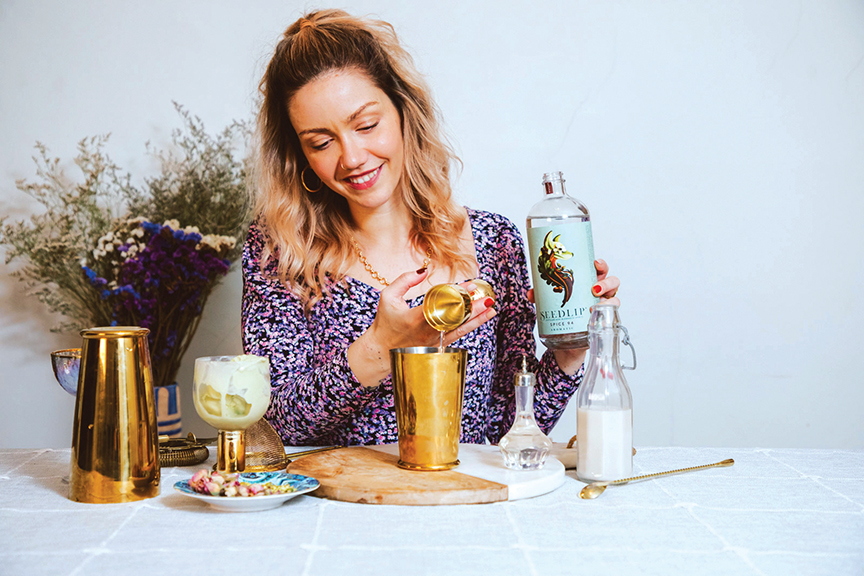
Above: Camille Vidal; Below: Laura Willoughby
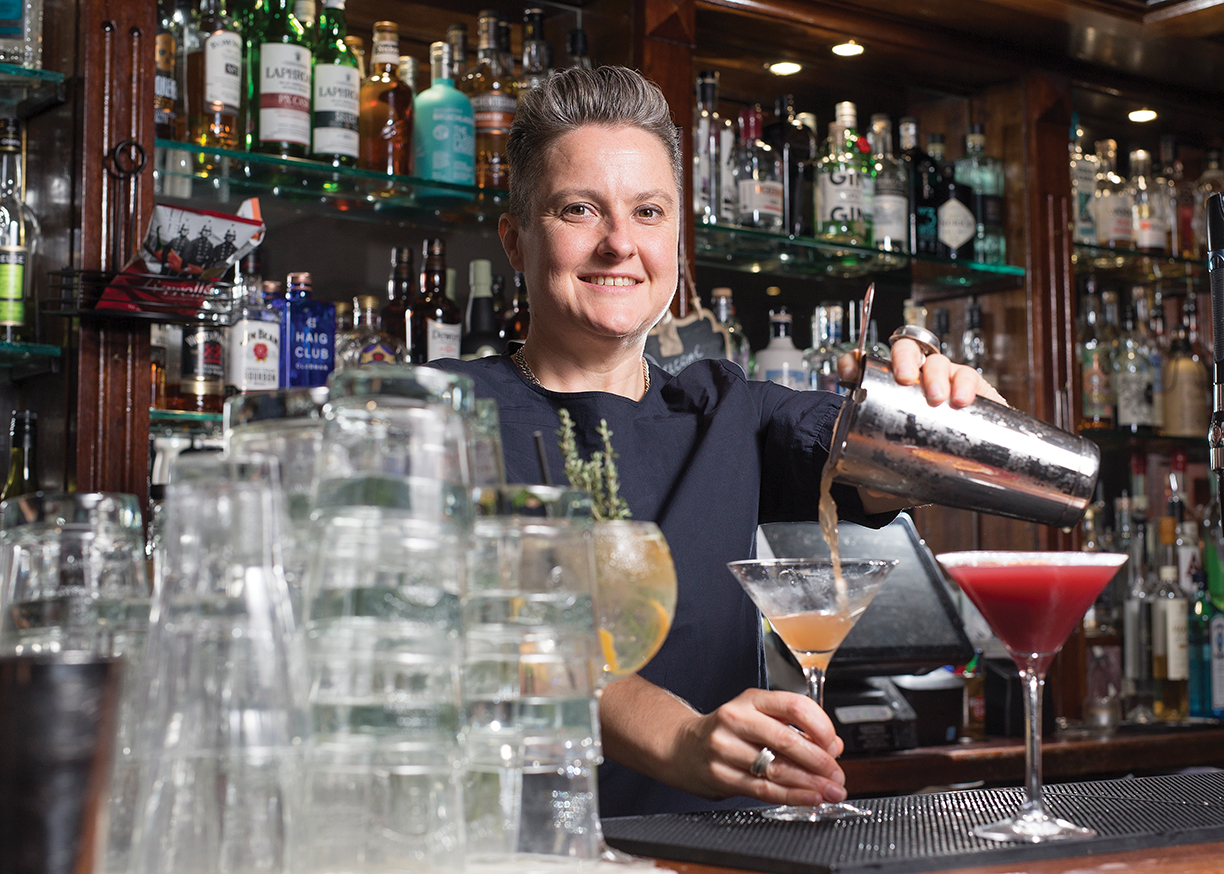
Willoughby herself enjoys drinking Three Spirit as one of her non-alcoholic options along with kombucha, which is something that Vidal says is a great addition to any non-alcoholic or low ABV cocktail. According to Vidal and Willoughby, choosing to become a mindful drinker doesn’t really have any setbacks, as it opens the door to a new lifestyle and way to enjoy nights out or time spent with good company. “People believe they have to give up their social life if they change their drinking, but what happens is your social life changes,” Willoughby says. “And guess what? Your social life changes anyway as you go through life.” On Club Soda’s website, the organization offers courses that help guide people down a mindful drinking journey that works for their lifestyle. “If somebody’s desire is to try and drink moderately,” says Willoughby. “Then that’s absolutely fine by us as well.” She goes on to say that there is a binary view of alcohol, which in actuality, there isn’t.”
Whether someone is choosing to phase alcohol out of their lives or is looking to start a new relationship with it, there are plenty of options that are just as delicious as their alcoholic counterparts. “I always say ‘tasty doesn’t have to be boozy,’” says Vidal. “For me, there’s something magical about having a low-alcoholic or non-alcoholic cocktail, and it’s not about the alcohol content, it’s about the moment, the celebration and appreciating the experience we’re having.”
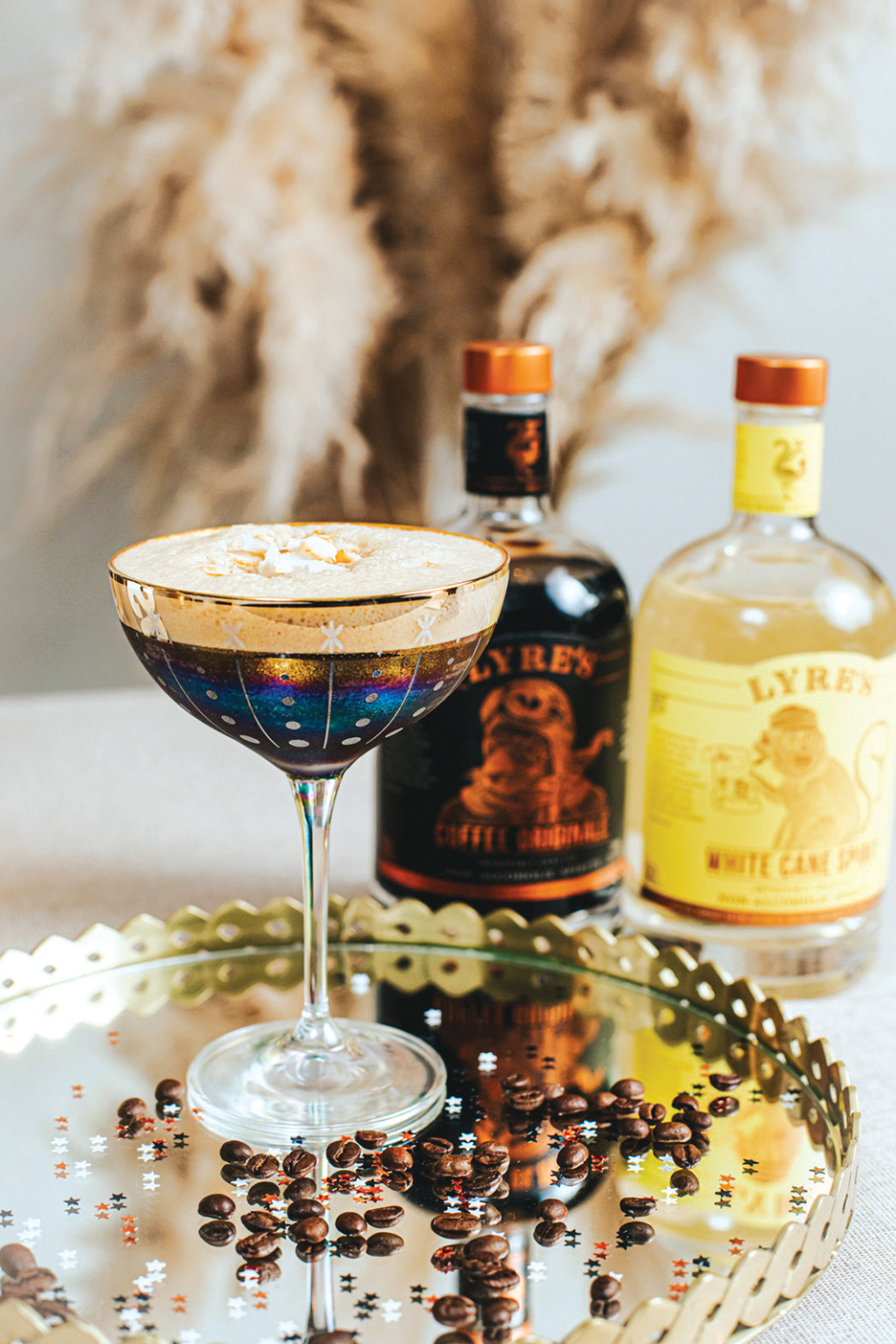
Café Soirée
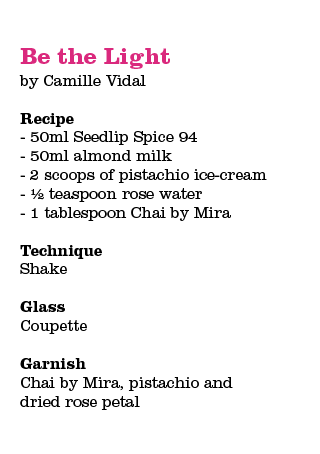
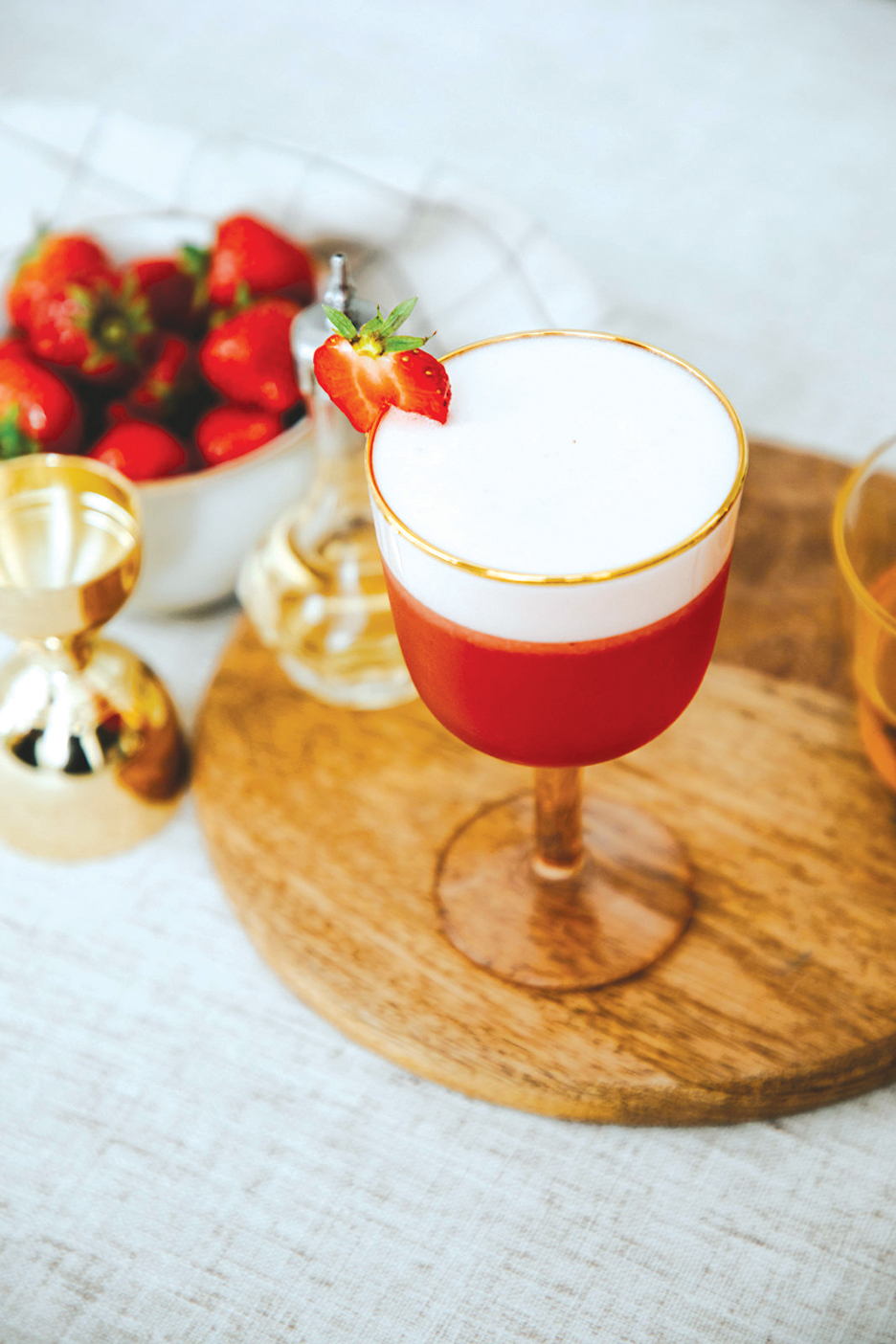


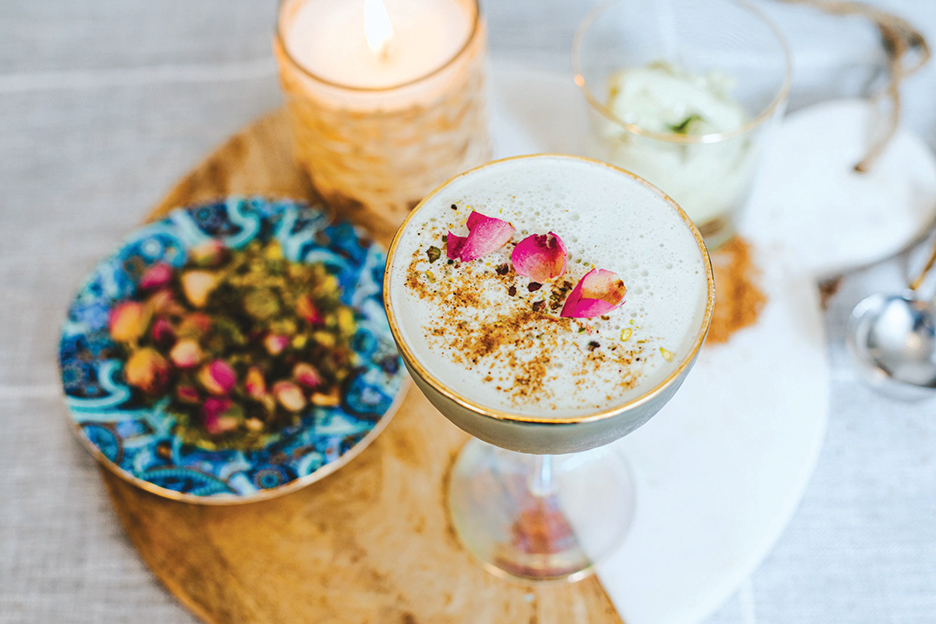
Leave a Reply